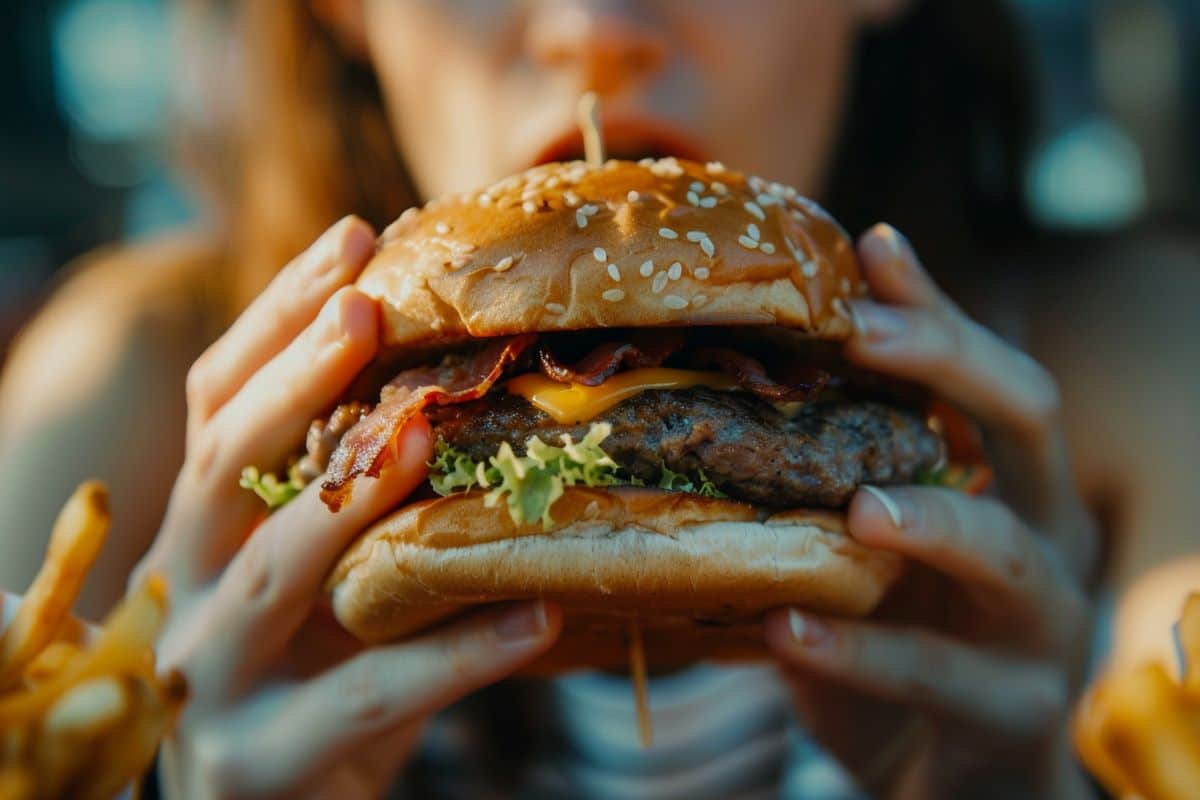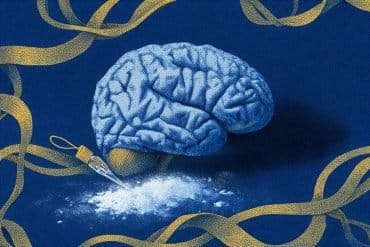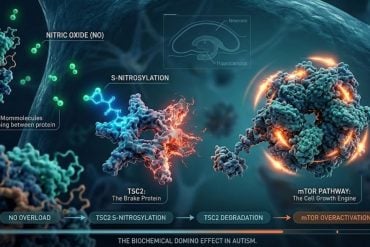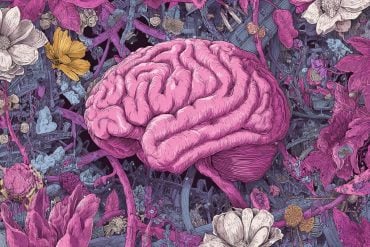Summary: A high-fat diet can disrupt gut bacteria, alter behavior, and influence brain chemicals in ways that increase anxiety. The study found that rats fed a high-fat diet showed less diversity in gut bacteria and higher expression of genes associated with stress and anxiety. This suggests that unhealthy eating habits may not only lead to weight gain but also negatively impact mental health.
Key Facts:
- A high-fat diet can disrupt the gut microbiome, leading to an imbalance in gut bacteria.
- An altered gut microbiome can influence brain chemicals, potentially increasing anxiety-like behaviors.
- Healthy fats, like those found in fish, olive oil, and nuts, are beneficial for the brain and may counteract the negative effects of a high-fat diet.
Source: University of Colorado
When stressed out, many of us turn to junk food for solace. But new University of Colorado Boulder research suggests this strategy may backfire.
The study found that in animals, a high-fat diet disrupts resident gut bacteria, alters behavior and, through a complex pathway connecting the gut to the brain, influences brain chemicals in ways that fuel anxiety.
“Everyone knows that these are not healthy foods, but we tend to think about them strictly in terms of a little weight gain,” said lead author Christopher Lowry, a professor of integrative physiology at CU Boulder.

“If you understand that they also impact your brain in a way that can promote anxiety, that makes the stakes even higher.”
Lowry’s team divided adolescent rats into two groups: Half got a standard diet of about 11% fat for nine weeks; the others got a high-fat diet of 45% fat, consisting mostly of saturated fat from animal products.
The typical American diet is about 36% fat, according to the Centers for Disease Control and Prevention.
Throughout the study, the researchers collected fecal samples and assessed the animals’ microbiome, or gut bacteria. After nine weeks, the animals underwent behavioral tests.
When compared to the control group, the group eating a high-fat diet, not surprisingly, gained weight. But the animals also showed significantly less diversity of gut bacteria. Generally speaking, more bacterial diversity is associated with better health, Lowry explained.
They also hosted far more of a category of bacteria called Firmicutes and less of a category called Bacteroidetes. A higher Firmicutes to Bacteroidetes ratio has been associated with the typical industrialized diet and with obesity.
The high-fat diet group also showed higher expression of three genes (tph2, htr1a, and slc6a4) involved in production and signaling of the neurotransmitter serotonin—particularly in a region of the brainstem known as the dorsal raphe nucleus cDRD, which is associated with stress and anxiety.
While serotonin is often billed as a “feel-good brain chemical,” Lowry notes that certain subsets of serotonin neurons can, when activated, prompt anxiety-like responses in animals. Notably, heightened expression of tph2, or tryptophan hydroxylase, in the cDRD has been associated with mood disorders and suicide risk in humans.
“To think that just a high-fat diet could alter expression of these genes in the brain is extraordinary,” said Lowry. “The high-fat group essentially had the molecular signature of a high anxiety state in their brain.”
Lowry suspects that an unhealthy microbiome compromises the gut lining, enabling bacteria to slip into the body’s circulation and communicate with the brain via the vagus nerve, a pathway from the gastrointestinal tract to the brain.
“If you think about human evolution, it makes sense,” Lowry said. “We are hard-wired to really notice things that make us sick so we can avoid those things in the future.”
Lowry stresses that not all fats are bad, and that healthy fats like those found in fish, olive oil, nuts and seeds can be anti-inflammatory and good for the brain.
His advice: Eat as many different kinds of fruits and vegetables as possible, add fermented foods to your diet to support a healthy microbiome and lay off the pizza and fries. Also, if you do have a hamburger, add a slice of avocado. Some research shows that good fat can counteract some of the bad.
About this diet and anxiety research news
Author: Lisa Marshall
Source: University of Colorado
Contact: Lisa Marshall – University of Colorado
Image: The image is credited to Neuroscience News
Original Research: Open access.
“High-fat diet, microbiome-gut-brain axis signaling, and anxiety-like behavior in male rats” by Christopher Lowry et al. Biological Research
Abstract
High-fat diet, microbiome-gut-brain axis signaling, and anxiety-like behavior in male rats
Obesity, associated with the intake of a high-fat diet (HFD), and anxiety are common among those living in modern urban societies. Recent studies suggest a role of microbiome-gut-brain axis signaling, including a role for brain serotonergic systems in the relationship between HFD and anxiety.
Evidence suggests the gut microbiome and the serotonergic brain system together may play an important role in this response.
Here we conducted a nine-week HFD protocol in male rats, followed by an analysis of the gut microbiome diversity and community composition, brainstem serotonergic gene expression (tph2, htr1a, and slc6a4), and anxiety-related defensive behavioral responses.
We show that HFD intake decreased alpha diversity and altered the community composition of the gut microbiome in association with obesity, increased brainstem tph2, htr1a and slc6a4 mRNA expression, including in the caudal part of the dorsomedial dorsal raphe nucleus (cDRD), a subregion previously associated with stress- and anxiety-related behavioral responses, and, finally, increased anxiety-related defensive behavioral responses.
The HFD increased the Firmicutes/Bacteroidetes ratio relative to control diet, as well as higher relative abundances of Blautia, and decreases in Prevotella. We found that tph2, htr1a and slc6a4 mRNA expression were increased in subregions of the dorsal raphe nucleus in the HFD, relative to control diet. Specific bacterial taxa were associated with increased serotonergic gene expression in the cDRD.
Thus, we propose that HFD-induced obesity is associated with altered microbiome-gut-serotonergic brain axis signaling, leading to increased anxiety-related defensive behavioral responses in rats.






